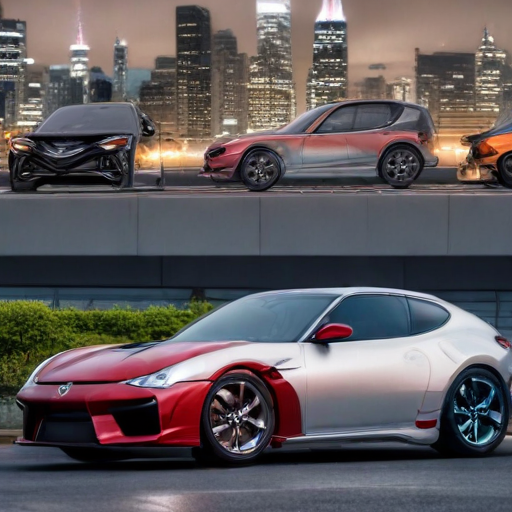Japanese automakers Honda and Nissan have initiated talks concerning a potential merger, aiming to become the world’s third-largest car manufacturer by sales amid a significant shift in the auto industry towards electric vehicles (EVs). The announcement comes as both companies seek to adapt to changing market dynamics and address financial challenges.
On Monday, a memorandum of understanding was signed between the two companies, and Mitsubishi Motors, a smaller member of the Nissan alliance, is also involved in the discussions. The presidents of both Honda and Nissan expressed intentions to establish a joint holding company that would unify operations while maintaining the distinct brands of each automaker. A formal merger agreement is anticipated by June, with the goal of finalizing the deal by August 2026.
Despite the hopeful outlook, Honda’s president, Toshihiro Mibe, emphasized that several issues need to be thoroughly examined before a merger can be finalized, indicating that there remains a possibility that talks could collapse.
The backdrop for these discussions includes the ongoing struggle of Japanese automakers to keep pace with global competitors in the electric vehicle market. A merged entity could create a powerful force with a market capitalization exceeding $50 billion and help challenge industry leaders like Toyota and Volkswagen.
In recent months, Honda and Nissan announced plans to share components for electric vehicles and collaborate on autonomous driving technologies, underscoring a commitment to adapt to the evolving landscape of electrification. This strategic partnership is seen as a potential lifeline for Nissan, which has been reeling from the fallout of prior leadership scandals and financial struggles.
Industry analysts suggest that the collaboration would provide Honda access to Nissan’s experience in building hybrid and electric vehicles, thereby strengthening its position in the market. The potential merger highlights a broader industry shift towards consolidation as automakers aim to enhance competitiveness during a transformative period influenced by technological advancements and environmental considerations.
While both companies currently face individual financial challenges, including job cuts and profit declines, the merger discussions signal a proactive approach to ensure sustainability and growth in the automotive sector. The Japanese government has also stressed the importance of competitiveness in this rapidly changing environment.
In essence, while hurdles remain, the possibility of a merger offers a glimpse of hope for both Honda and Nissan to emerge stronger together, potentially leading to innovative advancements in electric vehicle technology and improved market competitiveness.
